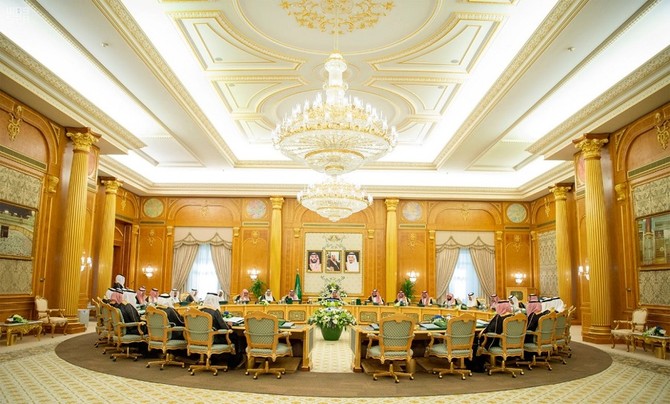JEDDAH: Gulf Arab allies have backed the royal decrees issued Saudi Arabia's King Salman on Saturday involving the death of Saudi journalist Jamal Khashoggi.
UAE
The United Arab Emirates hailed the directives and decisions of King Salman, following the unfortunate incident that killed Khashoggi, reported to the official state news agency WAM.
Sheikh Abdullah bin Zayed, Minister of Foreign Affairs and International Cooperation, commended the for his great and keen attention in this matter.
“The Kingdom of Saudi Arabia, represented by its leadership, was and still is a state of institutions based on justice and equity.
The royal decisions and actions taken after the investigation in this case reaffirm these values and established principles to ensure the application of law and justice,” he added.
Egypt
Egypt praised what it called the "decisive" and "brave" actions taken by the king.
"Egypt sees that the brave and decisive decisions and actions taken by the Saudi King over this matter align with his majesty's approach that respects the principles of law and applications of effective justice," the Foreign Ministry said in a statement.
It also offered its condolences to Khashoggi's family and said it was confident the investigation would reveal the truth.
Bahrain
Bahrain praised King Salman's interest to establish justice and fairness and his endeavors to disclose the facts, both impartially and objectively, are reflected in the wise directives and royal decisions issued in relation to the Khashoggi case.
"Saudi Arabia was and will remain the state of justice, values and principles that guarantee the application of law to all without exception," a statement issued on Saudi Press Agency said.
Bahrain stressed that Saudi Arabia, with its high regional and international standing and its great assets and noble contributions, will continue to be the basis of security and stability in the region and the world.
It reaffirmed its "strong solidarity with the Kingdom in all its positions and actions to all that harms its security, sovereignty and stability."
Palestine
Palestine commended King Salman's decisions to affirm justice and fairness.
The statement also stressed that Saudi Arabia, under the wise leadership of King Salman and Crown Prince Mohammed bin Salman, will remain the state of justice, values and principles.
Yemen
Yemen’s legitimate government praised the results of preliminary investigations conducted by Saudi Arabia’s Public Prosecution into Khashoggi's death , and praised decisions made by King Salman in relation to the investigation.
In a statement published by Yemen’s state news agency Saba New, the Yemeni government said that the findings of Saudi Arabia’s investigation in the Khashoggi case and the arrests that were made reflect the keenness of judicial institutions to ensure the safety of the Kingdom's citizens inside the country and abroad.
Jordan
Jordan said that it stands with the Kingdom of Saudi Arabia and the steps it has taken regarding the case of Khashoggi. The Jordanian government added that the measures taken by Saudi Arabia are essential for achieving justice.
Djibouti
Djibouti praised King Salman's decisions and said they are proof that Saudi Arabia is a nation of values, principles, and justice.
Oman
Oman welcomed on Sunday Saudi Arabia's decisions "on the regrettable incident" that led to the death of Khashoggi, the state news agency ONA reported.
"The sultanate welcome decisions taken by the kingdom in this regard, insists on the importance to allow justice to take its course, away from any interpretation," ONA said, quoting a statement from the Gulf state's foreign ministry.
Kuwait
Kuwait welcomes decisions by Saudi king with regards to Khashoggi case, according to a Kuwaiti foreign ministry source to KUNA.
Lebanon
Lebanon's premier-designate Saad Hariri threw his support behind Saudi Arabia Tuesday over the death of Saudi journalist Jamal Khashoggi at its Istanbul consulate.
"The measures taken by the Kingdom of Saudi Arabia regarding the case of journalist Jamal Khashoggi... come within the framework that serves the path of justice and the disclosure of the whole truth," a statement from his office quoted him as saying.
Arab and Muslim Organizations
The Organization of Islamic Cooperation (OIC) affirmed that, since the beginning of its establishment that was based on justice, Saudi Arabia does not hesitate in implementing its provisions. King Salman Crown Prince Mohammed bin Salman, to bring all those who violate it to justice.
The organization’s secretary-general, Dr. Yousuf Al-Othaimeen, praised the transparency with which the Saudi Arabian government dealt with the disappearance of the Saudi journalist, which issued decisive decisions on Friday, including the arrest of 18 persons involved in this case following the initial investigations of the Attorney General.
The Kingdom confirmed the protection of its citizens and said it will not give up their rights.
Moreover from the beginning of Khashoggi’s disappearance, the Kingdom stressed that it will reveal the truth and will apply justice to all those involved, which is already underway.
At the same time, Al-Othaimeen stressed that it is not possible to jump to conclusions in these investigations until it is officially concluded.
All 18 detainees are still accused and have not been found guilty by the judiciary.
He said: “The Saudi judiciary, which has integrity and independence, will issue fair judgments, and it is not appropriate to prejudge decisions made by the judiciary.
Secretary General of the Gulf Cooperation Council (GCC), Dr. Abdullatif Al-Zayani lauded the latest measurements taken by the Kingdom.
In a statement, Al-Zayani called the measurements as asserting the firmness as well as the wisdom of the Kingdom's leadership, by clearly prioritizing facts before world public opinion and by pursuing investigations in such a sorrowful and grave case and holding those involved accountable.
Saudi Arabia’s highest religious body, the Council of Senior Scholars, on Saturday said the king’s decisions on the death of Khashoggi “achieve justice and equality in accordance with Islamic law”, according to a statement on state news agency SPA.
















